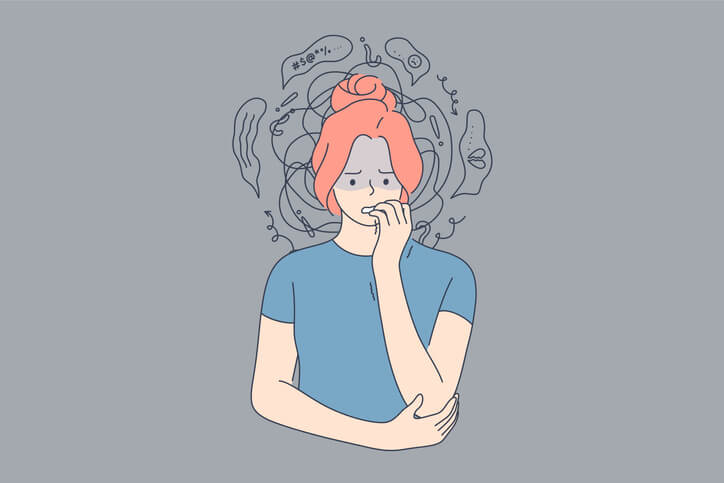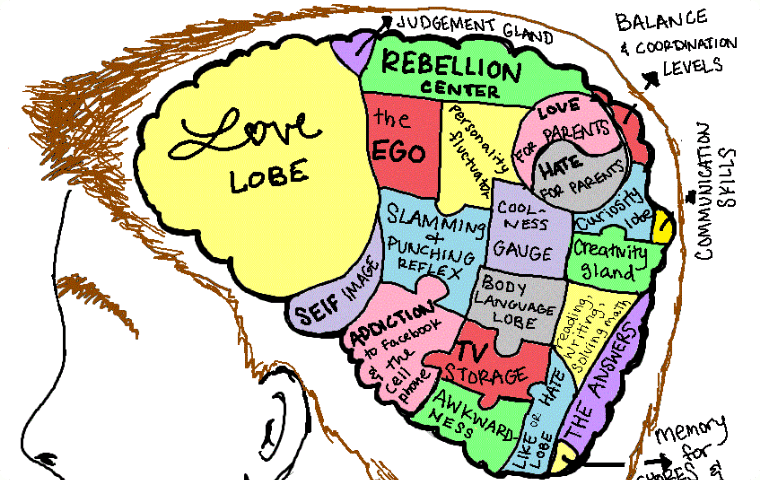25% of unlicensed young adults in the United States report that they’re too scared to drive. As a result, more teens are postponing the process of getting their drivers’ licenses. This may come as a shock—especially for those who took their driving tests as promptly as possible when they were teens—but the reality is that today’s generation of young people simply don’t feel the same excitement about driving.
In fact, many of them suffer from full-fledged driving anxiety, which can be manifested in many different ways. For some, the thought of driving may cause feelings of panic and stress. For others, getting behind the wheel could cause an actual panic attack.
For parents and guardians of teens, it’s important not only to understand what’s causing an uptick in driving anxiety—but what can be done about it. From there, it is possible to help teens overcome this anxiety, empower them to get their licenses, and (most importantly of all) stay safe behind the wheel.
What's Causing Driving Anxiety in Teens?
There are many factors that could be leading to higher rates of driving anxiety in teens. For starters, there’s the simple and undeniable fact that teen drivers are statistically the most likely to be involved in traffic accidents. In fact, according to the CDC, motor vehicle crashes are the second leading cause of death for teenagers in the United States. Combine this with the fact that teen traffic accidents account for about 300,000 emergency room visits across the United States each year—and it’s easier to see why some teens simply don’t feel excited about learning how to drive.
However, the higher risk of accident associated with teen drivers isn’t the only explanation for the recent uptick in teen driving anxiety cases; COVID may also be to blame. Many teens who were old enough to get their driver’s licenses during the peak of the pandemic were simply not able to. Many DMVs across the country were shut down, and even those that weren’t were severely understaffed.
As DMVs and testing centers have reopened, many of the teens who had postponed getting their licenses are suddenly faced with a sense of urgency to take their road tests. This, on its own, can generate feelings of anxiety or amplify existing concerns. In fact, one study found that 76% of parents believe that the pandemic made their driving-aged teen less motivated to get a license.
How to Help Teens Overcome Driving Anxiety
Driving anxiety is a very real problem for American teens—and it’s clearly preventing them from getting their driver’s licenses. Unfortunately, not having a driver’s license as a teen or young adult can create issues both immediately and down the road. For example, not being able to drive can limit a teen’s employment options. It can also create social issues, especially for those whose friends and classmates may already have their licenses.
At worst, ongoing driving anxiety could expand into more generalized anxiety about going to new places or trying new things. With this in mind, parents and guardians should work to support teens and find ways to help them overcome their driving anxiety.
The most important thing you can do as a parent is to simply talk with your teen in a non-judgemental and open manner. Asking your teen about their concerns and getting them to open up can go a long way, but it’s important to listen closely to what your teen has to say and make sure they feel heard and understood.
Many parents also find success talking to their teens about the benefits of having a driver’s license while reminding them that they don’t have to drive. Simply having a license and the ability to drive without the pressure to get behind the wheel can be very helpful for some anxious teens.
Meanwhile, a little formal education can help teens who may be feeling anxious about driving. Specifically, driver education courses that are specifically geared towards teens can help them get a better feel for what to expect behind the wheel, which can alleviate some anxiety. The knowledge obtained from these courses can also help teens feel much more confident, prepare them for their road tests, and stay safe on the road once they’re licensed.
Last but not least, parents should recognize when a teen may need a little more help from a licensed therapist or counselor. Often times, driving anxiety is rooted in deeper psychological struggles—and a professional will be able to help with things like exposure therapy, relaxation techniques, and more.
The Right Education Can Make a Difference
While getting a driver’s license used to be a rite of passage for many teens, the reality is that anxiety is keeping a lot of teens from taking that leap. By knowing how to recognize the signs of driving anxiety and supporting teens who may be struggling, parents and guardians can instill confidence in young adults. From there, it’s all about providing them with the tools they’ll need to stay safe behind the wheel.
Liam Hoch researches and writes about safe driving for DriverZ.
Having been a passenger in multiple near-catastrophic vehicle collisions, Liam knows first-hand the dangers of distracted, reckless, and unsafe driving.
Passionate about our core principles of helping to make safer drivers and, ultimately, saving lives, Liam stays at the forefront of driving safety innovation and research.

















